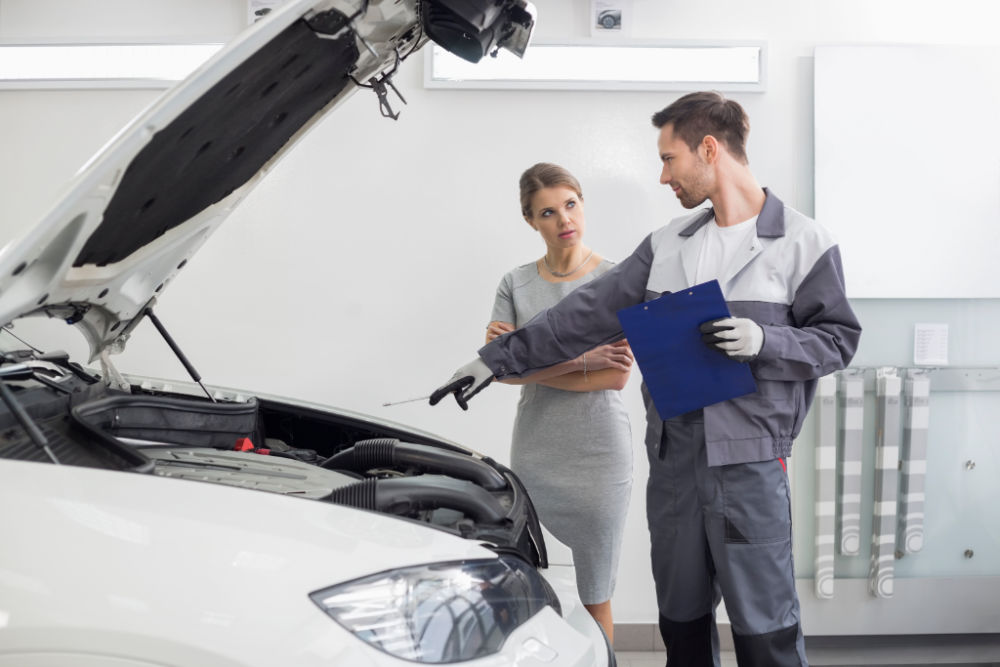The Proper Way to Maintain and Get Bentley Repair in Georgia USA
Owning a Bentley is more than just having a luxury car, it’s a symbol of opulence and prestige. These exquisite vehicles are the epitome of craftsmanship, blending cutting-edge technology with timeless design. However, to ensure your Bentley continues to exude its signature elegance and performance, proper Bentley repair and maintenance is crucial. If you are ever looking for Bentley repair in Georgia, this article can help you explore key steps and strategies to maintain your Bentley in pristine condition, allowing you to protect its exquisite driving experience for years to come.
Washing and Detailing Your Bentley Auto
The first step in maintaining your Bentley’s pristine appearance is regular washing and detailing. The finish on a Bentley is exquisite and deserves meticulous care. To wash your Bentley, follow these steps:
- Gather the Right Supplies: Use a high-quality car wash soap, a soft sponge or microfiber cloth, and two buckets (one for soapy water and one for rinsing).
- Pre-Rinse: Start by rinsing your Bentley with a hose to remove loose dirt and debris. This minimizes the risk of scratching the paint during the wash.
- Wash Gently: Dip washcloth into the soapy water and wash the car gently, starting high and working to the bottom. Be sure to rinse the washcloth frequently to prevent dirt buildup.
- Rinse Thoroughly: After washing, thoroughly rinse the car to remove all soap residue.
- Dry Carefully: Use a clean, soft microfiber towel to dry the Bentley, again starting high and working down. Avoid using any abrasive materials that could scratch the paint.
Detailing your Bentley involves more thorough cleaning, including polishing and waxing. Consider professional detailing services for this step, as experts have the experience and products needed to maintain the car’s high-gloss finish.
Bentley Repair and Maintenance Service in Georgia
Regular repair and maintenance checks are vital to ensure your Bentley operates flawlessly. Here are some key areas to focus on:
- Oil Changes: Change the engine oil and oil filter at the recommended intervals, typically every 5,000 to 10,000 miles. Bentley recommends using the appropriate synthetic oil for your specific model.
- Tire Maintenance: Monitor tire pressure regularly and ensure it matches the manufacturer’s specifications. Rotate the tires as recommended to ensure even wear.
- Brake System: Check the brake pads and rotors for wear, and replace them as needed. Properly functioning brakes are essential for safety and performance.
- Fluid Levels: Regularly check and top off all fluid levels, including coolant, brake fluid, and windshield washer fluid.
- Battery Health: Keep an eye on your Bentley’s battery and replace it when it shows signs of aging. A dead battery can leave you stranded.
- Suspension and Alignment: Have the suspension system and wheel alignment checked to maintain optimal handling and ride comfort.
Protecting the Interior & Exterior of Your Bentley Living In GA
The interior of a Bentley is as luxurious as the exterior, and proper care is essential to maintain its splendor. Here’s how to protect the interior of your Bentley:
- Leather Care: Bentley interiors often feature exquisite leather. Clean and condition the leather seats and trim regularly using high-quality leather products to prevent cracking and fading.
- Dashboard and Trim: Use a non-abrasive cleaner and microfiber cloth to clean the dashboard and trim. Avoid harsh chemicals that can damage the finish.
- Carpet and Floor Mats: Vacuum the carpet and floor mats regularly, and consider using protective mats to prevent wear and stains.
- Sun Protection: Use sun shades or window tint to protect the interior from UV rays, which can cause fading and cracking of upholstery and trim.
- Regular Cleaning: Perform regular interior cleaning to prevent dirt and debris buildup. Pay attention to areas like the steering wheel, shift knob, and door handles, which are frequently touched.
To maintain the exterior of your Bentley in showroom condition if you live in a harsh and humid Southeastern climate like Georgia, North Carolina, or South Carolina, consider the following tips:
- Paint Protection: Invest in paint protection film (PPF) or ceramic coating to shield the paint from rock chips, scratches, and UV damage. These treatments also make cleaning easier.
- Avoid Parking Hazards: Be cautious about where you park your Bentley. Avoid parking under trees or near construction zones to prevent damage from falling debris.
- Bird Droppings and Tree Sap: Promptly remove bird droppings and tree sap to prevent them from etching into the paint. Use a gentle cleaner and a soft microfiber cloth.
- Garage Storage: Whenever possible, store your Bentley in a garage to shield it from the elements.
- Regular Waxing: Apply high-quality car wax periodically to maintain the paint’s luster and provide an additional layer of protection.
Good Driving Habits Prevent Bentley Engine Problems
Your Bentley driving habits play a significant role in the maintenance of your Bentley. Here are some driving tips to keep in mind:
- Warm-Up the Engine: Allow the engine to warm up before driving, especially in cold weather. This helps lubricate the engine components and ensures smoother operation.
- Gentle Acceleration and Braking: Avoid aggressive acceleration and braking, as this can strain the engine and wear out the brakes more quickly.
- Avoid Potholes and Speed Bumps: Drive cautiously to avoid potholes and speed bumps, which can damage the suspension and undercarriage.
- Maintain Proper Tire Pressure: Ensure your tires are properly inflated to maintain good traction and ride comfort.
- Regularly Check for Warning Lights: Pay attention to warning lights on the dashboard and address any issues promptly to prevent further damage.

Get Bentley Repair & Maintenance in Georgia
Owning a Bentley is a privilege that comes with the responsibility of proper maintenance. By following these steps and strategies, you can ensure your Bentley remains a symbol of elegance, performance, and luxury for years to come. Regular washing and detailing, choosing the right service center, protecting the interior and exterior, and adopting good driving habits are all essential aspects of maintaining your Bentley’s impeccable condition. With the right care and attention, your Bentley will continue to be a masterpiece of automotive engineering and design.
If you live in the USA, the specialized auto mechanics at Import Specialties provide Bentley repair in Georgia. Customers from many states bring their cars there, because they also provide services to customers who live in North Carolina and South Carolina.
This blog post is not directly affiliated with Bentley USA. For more information, visit: https://www.bentleymotors.com/en.html











